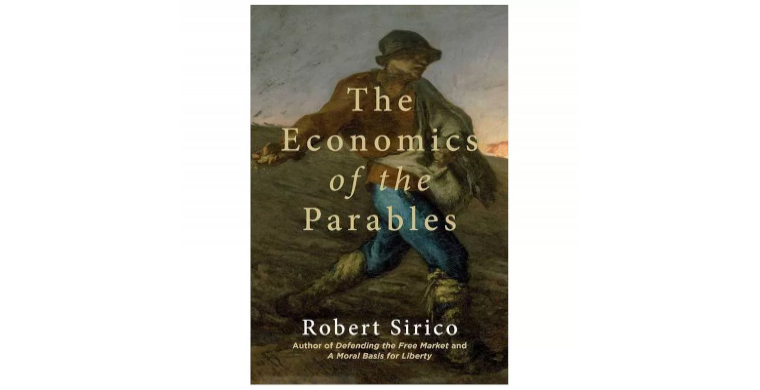JESUS TALKED ABOUT MONEY
A review of The Economics of the Parables by Robert Sirico (Regnery Gateway, Washington, 2022)
Reviewed by William D Loring
www.virtueonline.org
November 23, 2022
In 1955 my family decided it was time for all of us to take a European tour. Starting in Italy we worked our way north, arriving by Channel Ferry in Folkstone on Sunday, July 3. Thence we took a taxi (that turned out to be a Rolls Royce) to Canterbury, arriving in time for a Verger's tour and Evensong.
The preacher that night was the Very Rev. Hewlett Johnson, DD, better known as the Red Dean (and appropriately clad in the scarlet chimere of an Oxford Doctor). His sermon, as he stressed at the start, was the fourth in a series of six on the similarities between Christianity and Communism and dealt with the passage in Acts 4:33-5:10 in which the believers in Jerusalem who owned property sold it and offered the proceeds to the Apostles for the support of the needy.
Fortunately, Fr, Sirico provides a corrective to the dean's thinking. Although this is not a parable, he does discuss it in passing, and notes the major difference between this account and the Communist system: the arrangement in Acts was entirely voluntary (not only for the whole group, but also for each individual -- a point which I remember noticing at the time).
The author is a Roman Catholic priest who has served in pastoral ministry (he is now retired and a pastor emeritus). He has also lectured and written broadly on religious, political, economic, and social issues, especially in defense of a free Market. Full disclosure: some years ago, my wife and I took part in a cruise/seminar where he was one of the speakers; we had several opportunities of private conversation with him and found that our views had much in common with his.
The thirteen chapters in the book each deal with either one parable or a group of closely related ones, first giving the full text (in the KJV -- he explains why in a preface) and then he explores the economic implications (sometimes obvious, sometimes not) and proceeds to draw out lessons for the readers in our own time. By way of example, let us take a quick look at one of the more difficult parables, The Unjust Steward (Luke 16:1--13). Here the economic issue as such is the fairly minor point that the steward is dishonest -- a common problem in financial dealings today. The lesson is not a commendation of his cheating; indeed, it is a warning against it. Rather the parable is a commendation of the steward's shrewdness in which Jesus "asks his disciples to draw a lesson from this as to how they might store up 'treasure in the heavens that faileth not' (Luke 12:33)."
Unlike the Dean's sermon, the book gave me little to argue with, but did much to inform my own thinking about religious and economic issues.
END














